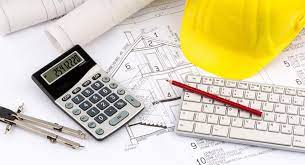The Evolution of an International Construction Company in Smart City Projects

As the world becomes more urbanized, cities face increasing infrastructure, sustainability, and public safety challenges. Smart city projects offer innovative solutions to these issues, and international construction companies are at the forefront of this transformation. They are embracing new technologies and strategies to develop smart infrastructures that are efficient, sustainable, and connected. This evolution is a testament to global construction firms‘ adaptability and forward-thinking nature, driving progress in urban development worldwide.
Integrating IoT for Smart Infrastructure
Incorporating the Internet of Things (IoT) into construction projects has revolutionized how infrastructures are built and managed. IoT enables real-time data collection and analysis by connecting various devices and systems, allowing for smarter decision-making. An international construction company utilizing IoT can enhance the efficiency of city operations, from traffic management to waste disposal. For example, road IoT sensors can monitor traffic flow and adjust traffic signals to reduce congestion. This leads to smoother traffic and less pollution, improving the quality of life for urban residents.
Furthermore, IoT-enabled infrastructure can improve resource management, leading to cost savings and environmental benefits. For instance, smart grids with IoT devices can optimize energy distribution based on real-time demand, reducing waste and lowering utility costs. The global construction sector is increasingly adopting these technologies to create infrastructures that are not only efficient but also sustainable. This approach aligns with the broader goals of smart city projects, which aim to create urban environments that are more livable, sustainable, and resilient.
Leading Sustainable Urban Design Innovations
Sustainability is a key focus of smart city projects, and international construction companies are pioneering innovative design solutions to reduce environmental impact. These companies are integrating green building practices, such as using sustainable materials, implementing energy-efficient systems, and promoting renewable energy sources. One notable example is green roofs and walls, which can reduce the urban heat island effect, improve air quality, and provide additional green spaces in densely populated areas.
In addition to these innovations, construction firms are exploring new ways to minimize waste and promote recycling. Prefabrication, for instance, is gaining popularity as it allows for more precise construction and reduces material waste. Companies can ensure higher quality and lower environmental impact by producing components in a controlled environment.
Enhancing Public Safety with Intelligent Surveillance
Public safety is a crucial aspect of any smart city project, and intelligent surveillance systems play a vital role in ensuring the safety and security of urban environments. International construction companies incorporate advanced surveillance technologies such as facial recognition, AI-powered analytics, and smart cameras into their projects. These systems can monitor public spaces in real time, identifying potential threats and alerting authorities to take action before incidents escalate.
Intelligent surveillance extends beyond traditional security measures, encompassing areas like traffic safety and disaster management. For example, AI-driven traffic cameras can detect violations and accidents, providing valuable data for improving road safety. Similarly, smart sensors can monitor environmental conditions and predict natural disasters, enabling cities to respond proactively and minimize damage.
Creating Connected Community Spaces
Smart city projects aim to create environments where people can live, work, and socialize seamlessly; connected community spaces are central to this vision. International construction companies are designing and constructing multifunctional spaces that foster interaction and engagement among residents. These spaces often feature advanced digital technologies, such as interactive displays, public Wi-Fi, and smart lighting, to enhance the user experience and encourage community participation.
Moreover, these connected spaces can support various community initiatives, such as public art installations, cultural events, and educational programs. By providing platforms for these activities, construction companies are helping to build stronger, more cohesive communities. The focus on connected community spaces reflects a broader shift in global construction toward more inclusive and people-centered urban development, highlighting the role of construction in shaping social dynamics and enhancing quality of life.
Utilizing Big Data for Urban Planning and Development
The use of big data in urban planning and development is transforming how cities are designed and managed. International construction companies harness data analytics’ power to inform decision-making and optimize project outcomes. These companies can gain valuable insights into urban dynamics and trends by analyzing vast amounts of data from various sources, such as sensors, social media, and public records.
Big data enables construction firms to identify patterns and make informed predictions about future needs, such as population growth, traffic flow, and infrastructure demand. This information is crucial for designing and implementing effective urban development strategies. Additionally, big data can facilitate collaboration among different stakeholders, including governments, businesses, and citizens, ensuring that smart city projects meet the community’s diverse needs. As global construction advances, integrating big data will play an increasingly important role in shaping the cities of tomorrow.
Smart city projects represent a significant shift in the construction industry, driven by the integration of technology and a commitment to sustainability. International construction companies are at the forefront of this transformation, leveraging their expertise and resources to build smarter, more sustainable, and connected urban environments. By embracing innovations such as IoT, sustainable design, intelligent surveillance, connected community spaces, and big data, these companies are shaping the future of urban development and improving the quality of life for people worldwide.